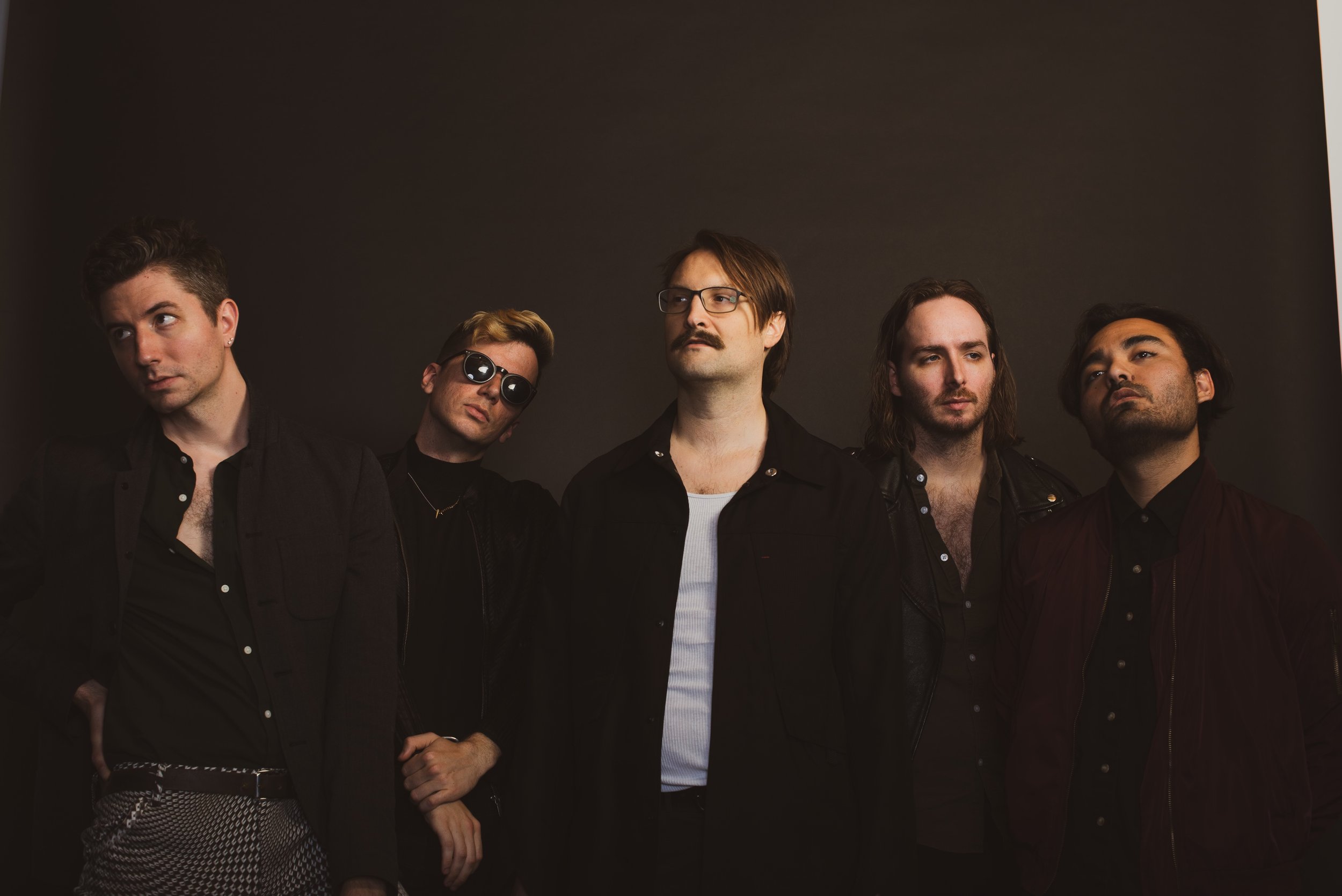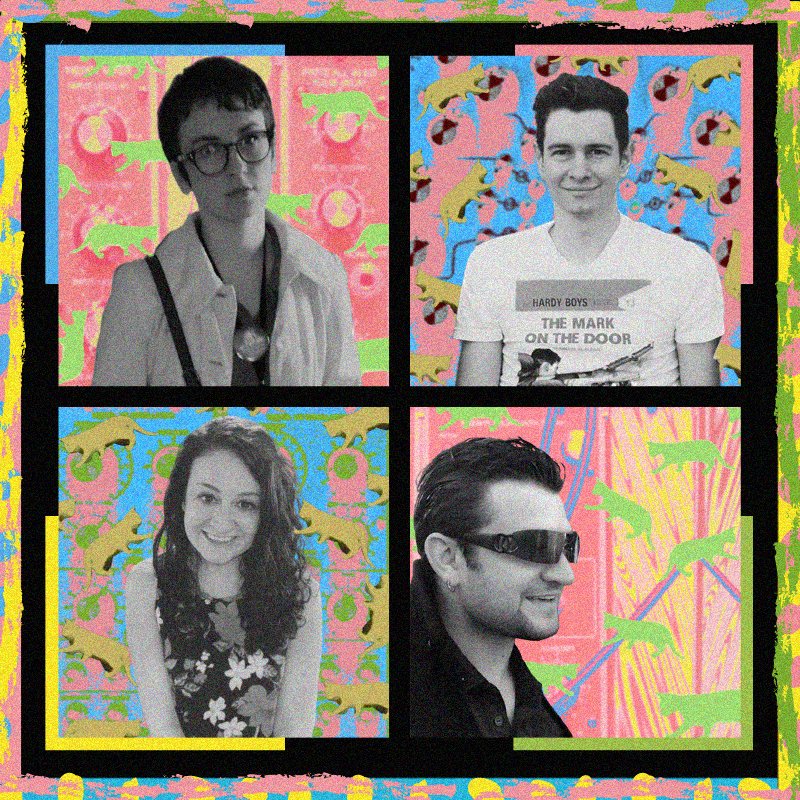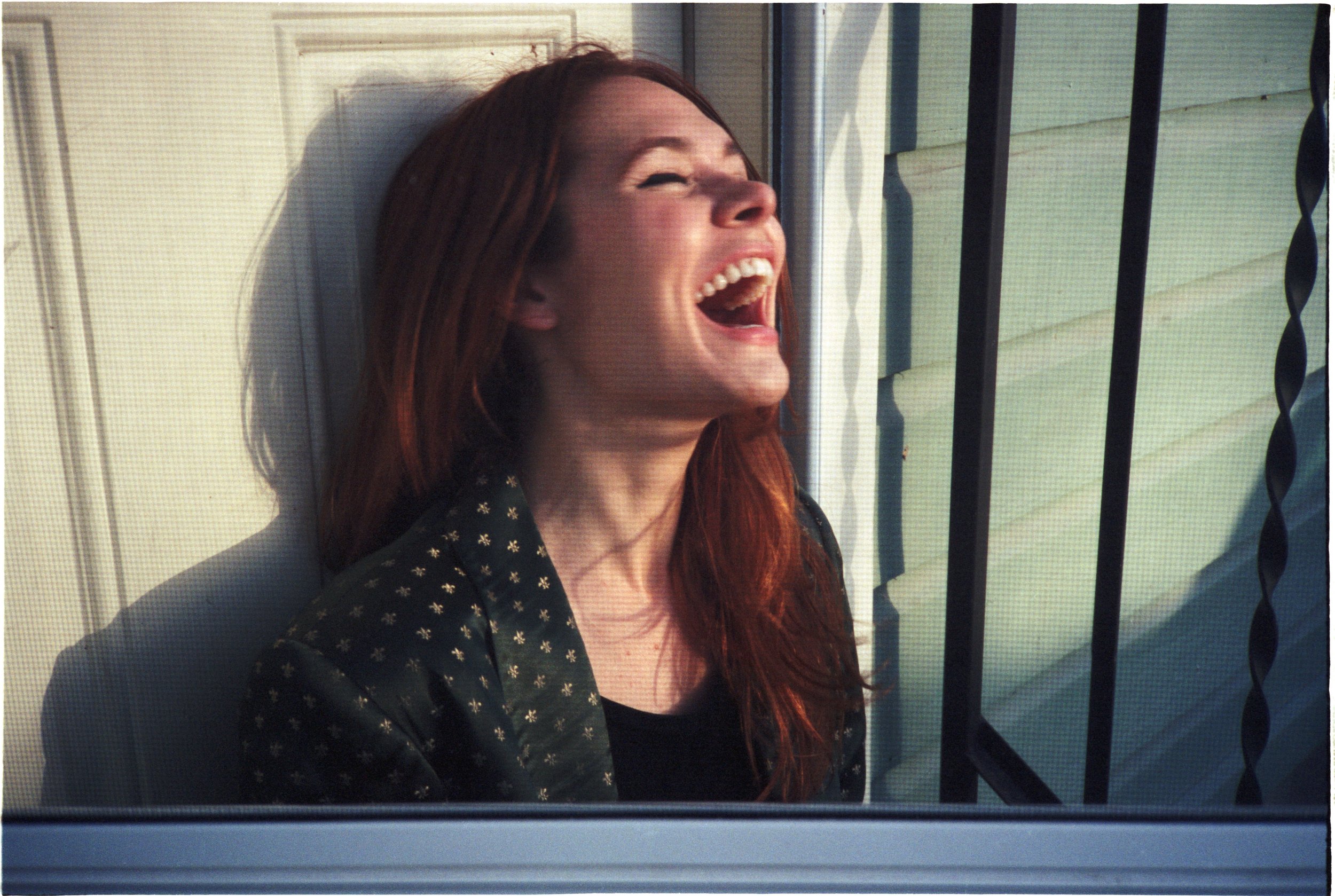Over the last decade, Super City has steadily discovered its metier in sticky pop hooks, mercurial arrangements, gleaming production, and live shows that are equal parts calculated performance art and ecstatic dance party.
Dan Ryan and Greg Wellman found each other in high school and started collaborating on off-kilter and open-hearted pop songs. After establishing themselves in 2014 with a self-titled EP and full-length Again Weekend a year later, Super City broke through with 2018’s acclaimed Sanctuary, a nimble distillation of their diverse pop/rock influences: the guitars are big, the synths are shiny, and the melodies are both.
Heartened by Sanctuary’s reception, Super City have recently completed In the Midnight Room, a stellar collection of songs that fuse at least six decades of pop into a thrilling album.
While every Super City song contains multitudes, the pop instincts that they’ve honed over the last decade are front and center on several tracks. “Getouttahere” kicks the album off with swaggering fuzz guitars that wrangle glam and new wave influences into a giddy rush, capped off with a classic stuttering vocal hook. “Hang Up” cleans up nicely with rubbery Nile Rogers guitar riffs and sleek falsetto before the song absolutely derails itself with a stomping road block of a chorus that empties out into Jon Birkholz’s bed of gorgeous synth sparkles. “Out of Touch” and “Know It All,” also featuring elastic funk with unexpected genre-defining left turns, boast the kind of virtuosic and playful guitar solos that have been incognito since the 80s. There are bright wisps of Stevie Wonder, Talking Heads, Prince, the 1975, and St. Vincent in their best pop songs, but Super City so completely chops and screws its influences that In the Midnight Room always feels crisp and forward-thinking.
And even though Super City’s pure popcraft can’t resist sneaky detours, In the Midnight Room also features more challenging fare that eschews any easy labels. Slotted perfectly at track 3, “Departed”’s adventurous melody somehow splits the difference between McCartney sweetness and Yorke queasiness over Brian Brunsman’s ominous bass synth and Ian Viera’s icy beats. The epic winds its way through a chorus featuring some truly disorienting modulations before uncoiling into a staggering, operatic climax. “Fear with Passion” sabotages the album’s dance party with evocative soundscapes, eerie detuned piano figures, swelling strings, and sophisticated major/minor harmonic shifts. In the album’s final stretch, “Stitch on Your Side” builds a compelling foundation of sleigh bells, filtered guitar, and sophisticated contrary motion progression before surrendering to the unabashed catharsis of “Hey Jude”-style nah nahs - all in less than four minutes. In the Midnight Room’s final word, though, goes to “Light of the Moon,” a sparse, beautiful composition that recalls nothing less than Brian Wilson’s more fragile moments.
Knowing that the wide range of these new favorites will be elevated yet further by the band’s remarkable live shows is exciting. With In the Midnight Room, Super City have certainly propelled themselves closer to perfecting their own genre of infectious future-art-pop.




















